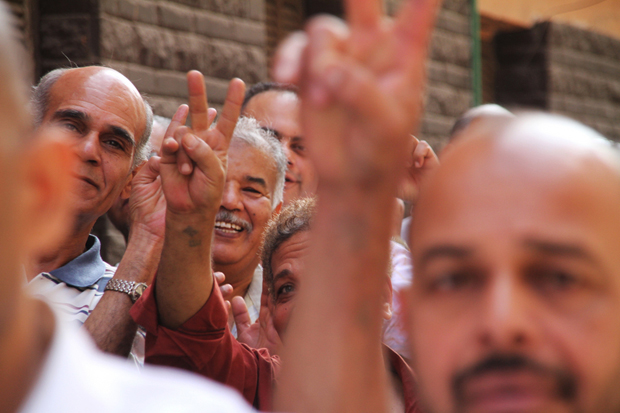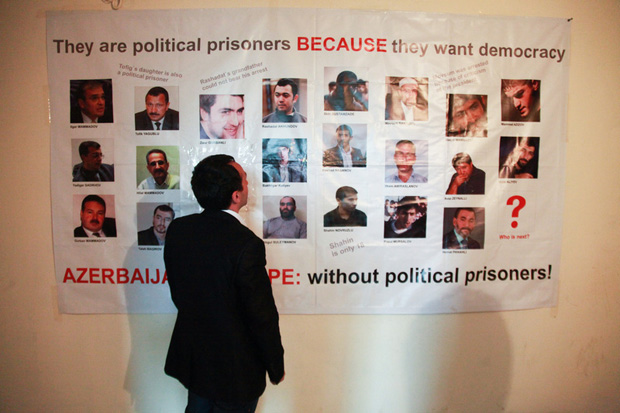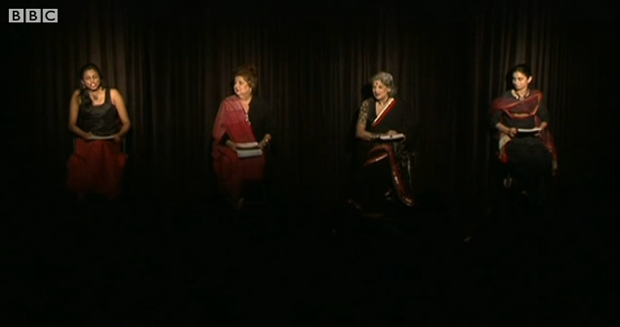27 May 2014 | News and features, Politics and Society, Singapore

Roy Ngerng has received a letters from lawyers representing Singapore’s prime minister.
A Singaporean blogger has had to take down another four blog posts and a YouTube video after receiving another letter from the lawyer of Prime Minister Lee Hsien Loong.
Roy Ngerng first received a letter from lawyer Davinder Singh on behalf of Prime Minister Lee Hsien Loong last week demanding that he take down and apologise for one blog post that had drawn parallels between Lee’s position as chairman of a sovereign wealth fund and the management of Singapore’s state pension fund and an ongoing trial into the misappropriation of funds by a megachurch.
Lee’s lawyer said that alleging that the he had misappropriated funds “constitutes a very serious libel”. On top of asking Ngerng to apologise, Lee also wanted to claim costs and damages.
Ngerng apologised for the article on Friday morning, admitting that the allegation was “false and completely without foundation”. He asked that Lee waive his demand for damages.
In response, Lee’s lawyers set a Monday evening deadline for Ngerng to respond with an offer of damages. If not, legal proceedings would be taken against him.
On Monday morning, another letter was received, taking issue with four blog posts and a video. Three of the blog posts raised questions over the way the state pension fund is managed, whereas the last blog post and video contained Ngerng’s response to Lee’s demand for damages.
Two of the articles had been published long before the first lawyer’s letter had arrived, one in July 2012 and one in May 2013.
“It is now clear from your client’s latest posts that your client’s apology and undertaking was not and never meant to be genuine,” Davinder Singh wrote to Ngerng’s lawyer M Ravi. He went on to say that Ngerng had “opportunistically” used the episode to “raise his public profile, garner support and sympathy, and renew his attack against our client”. This, Singh asserted, meant that Lee would be entitled to “aggravated damages”.
But Lee would be prepared not to claim these aggravated damages if Ngerng took down the four blog posts and video by Monday evening. Ngerng still has to make an offer of damages for the initial blog post that sparked this whole dispute.
In response, Ngerng’s lawyer M Ravi said that Ngerng would comply with Lee’s demand and take down the posts. He also asked that the deadline for an offer of damages be extended to Wednesday evening.
This article was posted on May 27, 2014 at indexoncensorship.org
27 May 2014 | Egypt, News and features

Egyptians began voting in a new presidential election which ex-army chief Abdel Fattah al-Sisi, who ousted the elected Islamist leader, is expected to easily win amid calls for stability and economic recovery. (Photo: Mohamed Krit / Demotix)
“El Sisi will not reside in the Presidential Palace but will instead be a roving President.”
Surprisingly — or perhaps not so surprising — the headline in the independent Al Masry El Youm newspaper was published Sunday, a day before Egyptians headed to polling stations to vote in their second presidential elections since the ouster of Hosni Mubarak three years ago. Egyptians had not yet cast their ballots but the country’s media had already declared former army chief Field Marshall Abdel Fattah El Sisi the winner in the presidential race. In an election that analysts have described as “lacking in suspense” and the outcome of which was “a foregone conclusion,” El Sisi, who is running against rival leftist candidate Hamdeen Sabahy, is widely expected to emerge as the victor, cementing the military’s grip on power.
In the weeks leading up to the vote, Egyptian media had reverted to Mubarak-era policies, persistently lionising El Sisi (and the military) while demonising his opponents. Government critics and dissenters of all stripes have meanwhile, been branded “terrorists” and “traitors,” in a trend reminiscent of the early days of the January 2011 mass uprising when the pro-democracy activists in Cairo’s Tahrir Square were described by state-controlled media outlets as “thugs” and “foreign agents.” Since the toppling of Islamist President Mohamed Morsi on July 3 ,2013 by military backed protests, the airwaves have been saturated with a constant stream of patriotic songs set to images of cheering crowds and of El Sisi in military uniform.
In the wake of the July 3 military takeover of the country however, the propaganda narrative has not been limited to the state-run Maspero media network, for decades the mouthpiece of various successive regimes. In the current repressive climate, many of the privately-owned media outlets are now also in lockstep with the country’s military-backed authorities. After Islamist channels were forcibly silenced last summer, there has just been one narrative in Egyptian media: the official narrative. Observers lament the reversal of one of the most important gains of the January 2011 revolution: a freer press. Some analysts explain the rallying of the media around the military’s nationalistic flag as a “natural reaction” to the looming “threat of terrorism.”
“Perhaps the media is simply doing what the media anywhere has a tendency to do in times of war or crisis, which is to let nationalism trump professionalism,” explained the Guardian’s Rachel Shabi in an article published several weeks after the ouster of the Muslim Brotherhood President. She also suggested that the private media outlets may be “getting their own back at the Brotherhood — which , after all, harassed opposition media while in power. ”
Other analysts believe journalists are practicing self censorship for fear of being accused of treachery. “They believe that this is a fight that transcends politics, and is a battle for Egypt’s survival,” British-Egyptian journalist Sarah Carr told the Guardian. “Anyone attempting to counter this official narrative is accused of being a traitor.”
Meanwhile, the low turnout on Monday, the first day of voting in the presidential election, prompted frantic appeals by TV talk show hosts and commentators to voters to cast their ballots.
“We are in a state of war. The low turnout gives the West and traitors inside the country a signal to pursue their conspiracies against Egypt. The country will face serious problems and may even transcend into a fragmented state like Syria or Libya”, journalist Mostafa Bakri warned Monday evening in an interview broadcast on the privately-owned El Thawra Channel.
“Those who boycott the elections are giving the kiss of life to terrorism.They are traitors,” he added, exhorting all “patriots” to participate in the election.
On his show El Qahira El Youm broadcast on the Saudi-owned Orbit satellite network, popular talk show host Amr Adeeb urged business owners to inspect the fingers of their employees for traces of ink to make sure they voted. “Tomorrow is not a public holiday for leisure,” he told viewers shortly after the Prime Minister declared Tuesday a holiday ” in compliance with the will of the people.”
On the privately-owned CBC channel, presenter Lamis El Hadidi used another tactic to persuade citizens to vote. Directing her message to Egypt’s Coptic Christians and playing on their fear of Islamists, she reminded the country’s minority Christian community of the torching of churches under Islamist rule. Her comments provoked an outcry on social media networks from young activists who perceived her remarks as “incitement to hatred ” and “serving to fuel sedition” in an already deeply polarised country.
“She is clearly suffering from amnesia. El Hadidi ‘forgot’ to mention the Maspiro massacre of Coptic Christians ,” retorted activist Nahed el Tantawy in a Facebook post, in reference to the violent dispersal by the military of a Christian protest rally outside the State TV building in October 2011.
The independent Al Masry El Yom meanwhile reminded citizens of the warning issued by the country’s Supreme Electoral Commission that those boycotting the vote would be fined 500 LE for abstaining.
Despite the calls for a big turnout by the country’s largely pro-military media, there was no sign of an early morning rush to polling stations as booths opened on Tuesday, the final day of the two-day vote. A judge at a polling station in Cairo’s affluent residential neighbourhood of Maadi blamed the markedly low turnout on the smeltering summer heat.
“People prefer to stay indoors in this hot weather,” he told Index.
Analysts however, believe that “apathy” and “fear of violence” are keeping voters away from the ballot box. Many of the country’s secular youths who helped mobilise the public for the 2011 mass protests demanding bread, freedom and social justice, are frustrated by what they see as “a return of the oppressive police state” they helped dismantle three years ago. Since last summer’s coup, a brutal security clampdown on Muslim Brotherhood supporters and liberal activists alike, has prompted a noticeable youth disengagement from politics. More than 1,400 protesters have since been killed by security forces while thousands of opposition figures languish in prisons on what rights activists perceive as “trumped up” charges. An April court ruling outlawing the April 6 movement — a pro-democracy group that was a driving force behind the January 2011 uprising — on charges of “espionage” and “damaging the country’s image abroad” is seen as a manifestation of the current climate of repression as are the rulings sentencing hundreds of Muslim Brotherhood supporters to death for their role in protests.
El Sisi has already made it clear that the crackdown on free expression will continue, should he become president. In a recent televised interview broadcast as part of his election campaign, he said “freedom of speech undermines national security,” adding that the role of the press was to “forge unity.”
It is little wonder that many sceptical , pro-reform activists perceive the return of the military regime as being part of a counter-revolutionary plan. “The interim military-backed authorities and their supporters in the media have spared no effort in their attempts to distort truths and disfigure the revolution,” they lament. ” Sadly, their efforts have so far been successful.”
This article was published on May 27, 2014 at indexoncensorship.org
27 May 2014 | Azerbaijan, Azerbaijan News, Politics and Society

(Image: Aziz Karimov)
An Azerbaijani journalist and blogger has been sentenced to five and a half years imprisonment after publishing posts deemed critical of the authorities on Facebook. Abdul Abilov, who runs the Facebook page “Stop sycophants!” was charged with illegal possession, storage, manufacturing or sale of drugs at the Baku Serious Crimes Court. The social media page was closed down shortly after his arrest.
Emin Huseynov, chairman of the Institute for Reporters’ Freedom and Safety (IRFS), is deeply concerned by the sentencing of journalists and bloggers in Azerbaijan, especially as the country has recently been handed chairmanship of the Committee of Ministers for the Council of Europe, a post Azerbaijan will hold for the next six months.
“Today’s harsh conviction shows once again the extraordinary measures that authorities are willing to take to crush criticism of their repressive policies, inconsistent with the country’s chairmanship of the Council of Europe,” Huseynov said in a statement. The IRFS has also called on the Council to “immediately appoint a special rapporteur on political prisoners in Azerbaijan” to analyse the situation in the country as well as raising the issue to the Parliamentary Assembly.
Abilov joins the eight journalist and seven bloggers and online activists already serving time in jail in the country for politically-motivated convictions, including the recent sentencing of the independent newspaper website editor Parviz Hashimli. And it’s not just journalists who are coming under fire from the authorities. Early May saw the sentencing of eight young activists on charges of attending to “cause public disorder”.
This article was posted on May 27, 2014 at indexoncensorship.org
27 May 2014 | India, News and features, Politics and Society, Religion and Culture

The Vagina Monologues performed in Mumbai in 2013 (Photo: BBC News)
“If Chennai doesn’t have vaginas, it is full of a#*holes!” quipped Mahabanu Mody Kotwal in the opening act of The Vagina Monologues when it was staged in Mumbai. The veteran theatre actor and director had good reason for using the pun. In December 2010, when the play was to be staged in the city for the first time, the Police Commissioner played spoilsport at the eleventh hour and declined permission. Earlier this year, a play on the Partition of India wasn’t allowed to be staged in Bangalore, and yes, Chennai. In both cases, it was the police which called the shots in the cancellations. Theatre’s subversive and liberating potential is renowned, and governments the world over have never held themselves back from wielding the censor’s bludgeon, but in India, it is the police which has been vested with remarkably sweeping powers to crack down on theatrical performances.
However, Chennai’s travails might well be over because in January this year, the Supreme Court struck down those provisions of the legislation – The Tamil Nadu Dramatic Performances Act, 1964 which permitted the cops to be the sole arbiters of “suitable” drama in the first place.
The roots of this legislation go back to the days when India was under British rule and the colonial administration remained constantly paranoid about “the natives” being up to mischief. Their fears were precipitated in 1876, when a Bengali play “Neel Darpan” (A Mirror to Indigo) was staged in Calcutta and got a rousing response, even from many Englishmen. The play narrated how farmers in Bengal and other provinces were being forced to cultivate indigo, and if they refused, were meted out the most terrible of punishments. This made the livid rulers who termed the play “scurrilous”, enact a law “to empower the government to prohibit certain dramatic performances”. The stated object of this law was to “prohibit Native plays that are scandalous, defamatory, seditious, obscene, or otherwise prejudicial to public interest”. Of course, “otherwise prejudicial to public interest” was left undefined, further empowering the censors.
It was hoped that independence would free drama from the shackles of this repressive law, but the reverse happened. Different states in India brought in their own legislations to control theatre, and most of them tightened the grip more than the British ever did.
For instance, the present legislation was geared towards proscribing “objectionable” plays and pantomimes. Section 2 (1) defined “objectionable” as anything which was likely to:
be seditious
(i) incite any person to commit murder, sabotage or any offence involving violence; or
(ii) seduce any member of any of the armed forces of the Union or of the police forces from his allegiance or his duty, or prejudice the recruiting of persons to serve in any such force or prejudice the discipline of any such force;
(iii) incite any section of the citizens of India to acts of violence against any other section of the citizens of India;
(iv) is deliberately intended to outrage the religious feelings of any class of the citizens of India by insulting or blaspheming or profaning the religion or the religious beliefs of that class;
(v) is grossly indecent, or is scurrilous or obscene or intended for blackmail; and includes any indecent or obscene dance.”
Thus, one is left in no doubt that the only form of ‘non-objectionable’ theatre would be bland, pantomimes extolling the virtues of mythology and religion; even then, one could never be sure, because religious sentiments in India are nothing short of a communal tinderbox.
If these antediluvian definitions weren’t enough, the police could act against the producer, director, troupe, and even the person who either owned or let out the premises where the play was to be staged. And there lurked the gravest danger- carte blanche powers of pre-censorship. Scripts of plays were to be submitted to the police for approval, and even though an opportunity of hearing was provided before the final call could be taken, it was hollow formality because the history of the legislation’s implementation proves that permission was granted only when the director or the playwright agreed to some of the mandated excisions.
In fact, the government was so unwilling to relinquish control that it told the Court of its willingness to appoint an officer to “guide the police commissioner in the cultural nuances” since literary sensibilities aren’t usually policemen’s forte!
The Supreme Court has broken the police’s stranglehold in Tamil Nadu; the time is ripe for challenging similar laws proscribing dramatic performances in other states and restoring to theatre the freedom it always deserved.
This article was posted May 27, 2014 at indexoncensorship.org




